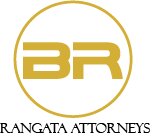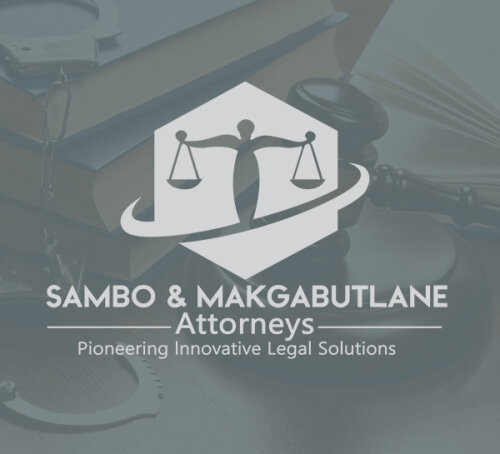Best Equity Capital Markets Lawyers in Pretoria
Share your needs with us, get contacted by law firms.
Free. Takes 2 min.
List of the best lawyers in Pretoria, South Africa
About Equity Capital Markets Law in Pretoria, South Africa
Equity Capital Markets (ECM) law deals with the regulations and legal frameworks that govern raising money for businesses through the sale of shares or equity. In Pretoria, as in the rest of South Africa, ECM is a vital sector that enables companies to access capital by listing on the Johannesburg Stock Exchange (JSE), carrying out rights issues, private placements, and secondary offerings. The field encompasses the legalities around public offerings, private placements, regulatory compliance, due diligence, and ongoing corporate governance. Pretoria, being home to significant businesses and financial institutions, has a robust ecosystem for ECM transactions, overseen by a mix of national laws and regulatory bodies to ensure fair practices and transparency.
Why You May Need a Lawyer
Navigating the Equity Capital Markets is complex, and there are several situations where legal help becomes essential. You might require a lawyer if you are considering listing your company on the JSE, planning to issue new shares, or participating in secondary offerings. Legal professionals assist in drafting and reviewing documentation, ensuring regulatory compliance, and managing negotiations with investors. Lawyers are also invaluable for due diligence processes, handling disputes, interpreting disclosure requirements, and dealing with shareholder rights. Whether you are a start-up seeking your first capital raise or an established entity looking at complex deals, legal counsel ensures your interests are protected and processes run smoothly.
Local Laws Overview
Equity Capital Markets in Pretoria operate under a well-defined legal framework. Key South African legislation includes the Companies Act 71 of 2008, which governs company formation, operation, and share issuance. The Financial Markets Act 19 of 2012 regulates securities and trading activities. All public offerings and listings must comply with the Johannesburg Stock Exchange Listings Requirements. The Financial Sector Conduct Authority (FSCA) oversees market conduct, while the Takeover Regulation Panel manages takeovers and mergers. Additional compliance includes anti-money laundering (AML) provisions, disclosure obligations, and rules for fair trading. These laws and regulations apply equally to businesses operating within Pretoria.
Frequently Asked Questions
What is an Equity Capital Market transaction?
An Equity Capital Market transaction involves raising capital for a company through the sale of shares to private or public investors, often facilitated through the stock exchange or private placements.
What are the main ways to raise capital through equity in Pretoria?
Main methods include initial public offerings (IPOs), rights issues, private placements, and secondary offerings, all governed by South African laws and the JSE Listings Requirements.
Do I need to be listed on the JSE to raise equity capital?
No, private placements and certain other equity transactions can take place without a JSE listing, but public offerings to the broader market require compliance with JSE regulations.
What are the legal requirements for an IPO in South Africa?
Legal requirements include compliance with the Companies Act, meeting JSE Listings Requirements, disclosure of detailed information to potential investors, and approval from regulatory authorities like the FSCA.
How do I ensure compliance with securities regulations?
Work with experienced legal advisors to ensure all documentation, disclosures, and processes meet regulatory standards set by the Companies Act, Financial Markets Act, and related guidelines.
What role does the FSCA play in ECM transactions?
The FSCA regulates market conduct, ensuring fair practices, transparency, and protection for investors in capital market transactions in South Africa, including Pretoria.
What documents are needed for an equity offering?
Common documents include a prospectus or disclosure document, shareholder resolutions, subscription agreements, legal opinions, and compliance certificates.
Are there restrictions on who can invest in ECM deals?
Some offerings may be restricted to qualified investors or have minimum investment thresholds to comply with local regulations and investor protection laws.
What is due diligence in ECM transactions?
Due diligence involves a thorough review of a company’s financial, legal, and operational position to identify risks and confirm disclosures before an equity transaction takes place.
Can foreign investors participate in Equity Capital Markets in Pretoria?
Yes, foreign investors can participate, subject to South African exchange control regulations and any sector-specific restrictions on foreign ownership.
Additional Resources
Useful entities for ECM-related advice and support in Pretoria include the Financial Sector Conduct Authority (FSCA), the Companies and Intellectual Property Commission (CIPC), the Johannesburg Stock Exchange (JSE), the Takeover Regulation Panel, and professional bodies such as the Law Society of South Africa and the South African Institute of Chartered Accountants. These organizations provide guidance, regulatory information, and compliance resources.
Next Steps
If you need legal assistance in Equity Capital Markets in Pretoria, start by identifying your specific needs, such as listing a company, raising capital, or ensuring regulatory compliance. Collect all relevant documents and details about your business or transaction. Reach out to a qualified local attorney or law firm with expertise in Equity Capital Markets. Schedule an initial consultation to discuss your requirements, evaluate your options, and map out a clear action plan with legal guidance tailored to your objectives. Early engagement with a legal professional can save time, manage risks, and ensure a successful ECM transaction.
Lawzana helps you find the best lawyers and law firms in Pretoria through a curated and pre-screened list of qualified legal professionals. Our platform offers rankings and detailed profiles of attorneys and law firms, allowing you to compare based on practice areas, including Equity Capital Markets, experience, and client feedback.
Each profile includes a description of the firm's areas of practice, client reviews, team members and partners, year of establishment, spoken languages, office locations, contact information, social media presence, and any published articles or resources. Most firms on our platform speak English and are experienced in both local and international legal matters.
Get a quote from top-rated law firms in Pretoria, South Africa — quickly, securely, and without unnecessary hassle.
Disclaimer:
The information provided on this page is for general informational purposes only and does not constitute legal advice. While we strive to ensure the accuracy and relevance of the content, legal information may change over time, and interpretations of the law can vary. You should always consult with a qualified legal professional for advice specific to your situation.
We disclaim all liability for actions taken or not taken based on the content of this page. If you believe any information is incorrect or outdated, please contact us, and we will review and update it where appropriate.
















